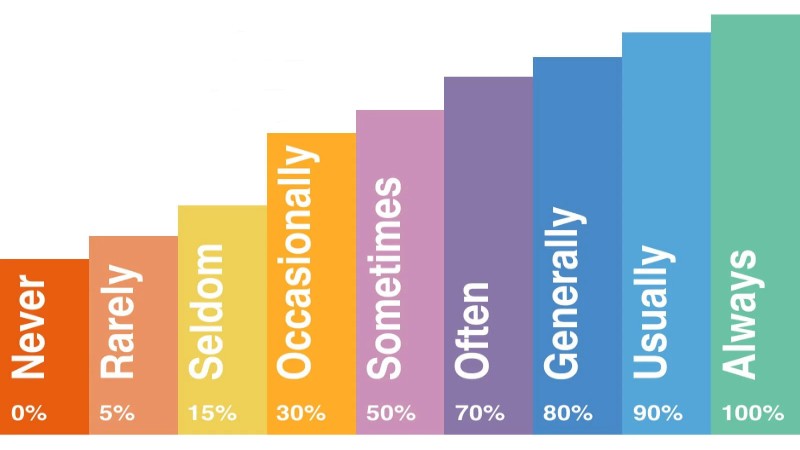
频率副词
我们使用频率副词和现在简单式来说明某事发生的频率。
| 100% | always | You are always late. |
| 90% | usually | We usually go to the park on Sunday. |
| 70% | often | He often cooks pasta. |
| 50% | sometimes | We sometimes order pizza for dinner. |
| 10% | hardly ever/rarely | She hardly ever smiles. |
| 0% | never | They are never at home when we call. |
频率副词的位置
频率副词放在动词之前,但放在be动词之后。在否定句中,频率副词放在 don’t/doesn’t 之后:
We don’t often go to bed late. 我们不经常晚睡。
He doesn’t always agree with me. 他并不总是同意我的看法。
在疑问句中,频率副词放在主词之后。
Is he always late? 他总是迟到吗?
Do they often go to the library? 他们经常去图书馆吗?
never/hardly ever 从不/几乎从不
副词 never 和 hardly ever (=almost never) 字义本身具有否定意义,但它们在句子中是与肯定动词一起使用:
He is never late. 他从不迟到。 (不能说 He isn’t never late.)
They hardly ever go to the library. 他们几乎从不去图书馆。 ( 不能说 They don’t hardly ever go to the library.)
更多频率的表达
我们还有其他表达频率的表达方式: once a day每天一次、twice a week每周两次、three times a month每月三次、every day每天等。这些表达方式较长(用2 个字或更多字)并且都放在句末。
I brush my teeth three times a day. 我每天刷牙三次。
I see her every day. 我每天都看到她。
频率副词搭配现在简单式 – 练习题



Comments